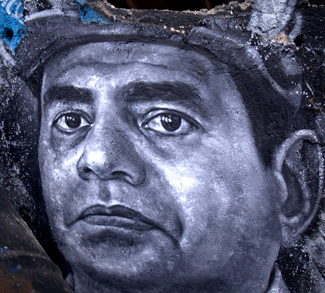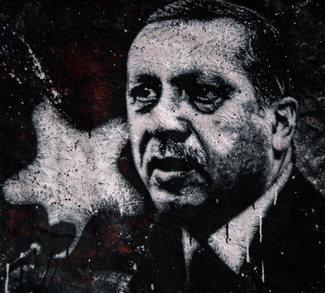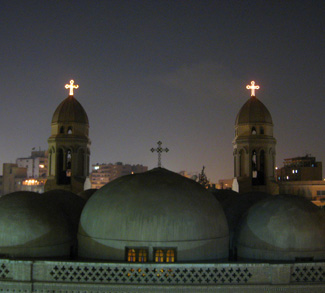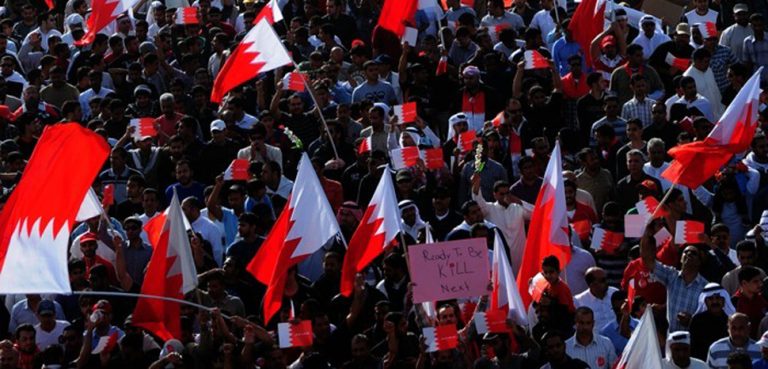Three years on, Egypt’s revolutionary spirit is fading away and it’s harder than ever to see where that movement of people seeking a civilian, secular, democratic path has gone. Even more disconcerting is declining popular support for the fight for freedom and justice; the one voice that speaks the truth on oppressive power regardless of who rules.
Whatever is left of the Egyptian uprising, today only a shrunken, lonely bunch of revolutionaries seem to remain true to the original impulse that drove the masses onto the streets to uphold the Revolution’s principles and ideals of dignity and liberty.
Against the current backdrop of violent polarization – between a minority backing the Muslim Brotherhood’s claim to legitimacy and a majority looking comforted with the military’s stability – the middle way alternative is nowhere to be found in Egypt these days. It’s even harder to find in any political movement a strong, cohesive, organized force that can both speak and act in the Revolution’s name.
Stuck between two rival camps essentially interested in power grabs, few scattered liberals and secularists who reject picking sides hold the military-backed regime as much as the Brotherhood accountable for their misdeeds, inviting attacks from both sides. This is the price that is paid by these disappearing, fringe revolutionaries, seen as either ‘traitors’ by the interim government or ‘secretly pro-military’ by Islamists.
Among other groups, one may remember the Third Square, a movement made up of revolutionary activists who resist Egypt’s drift from revolution to ongoing unrest. When now Field Marshal Al-Sisi called on Egyptians to go out to back his authority last July, Karim Muhammed Hassan, spokesman for the Third Square, said “political activists from several parties began communicating, searching for a way out of the political crisis we find ourselves in now.”
Standing against the military council, any return of ousted president Morsi to power, and any return of the feloul – remnants of Mubarak regime – to political life, Third Square activists, in their early days, called for a purging of government units and the election of a civilian president.
A campaign called Masmou3, which means ‘’heard’’ in Arabic, was created by liberal and leftist activists in the aftermath of last year’s toppling of Morsi, calling on supporters to bang on pots and pans from their windows during curfew time to express disagreement with both the Brotherhood and the military-backed regime.
In a deeply polarized Egypt, with growing anti-Islamist rhetoric since Morsi’s overthrow last 30 June coupled with the frenzy over any ‘pro-Morsi’ portrayal by local media or citizens, the streets are no longer safe for anyone to express dissent. And more Egyptians are failing to distinguish between different opposition movements and parties.
The current military-backed rule is doing everything in its power to contain the Revolution’s current. The almost zero tolerance showed by Egyptian authorities over the past months, in the arrest and prosecution of protesters, journalists and academics, tells of how quickly the space for dissent is vanishing.
With such a silencing climate on Egypt’s streets, the violent repression of opposition groups has forced more non-partisan activists to step back and regroup. Many are not seeing the benefit of facing a more brutal crackdown, and some are looking for new tactics.
Today, liberal and leftist politicians are far from being influential, revolutionary activists have little public support, and the faces of democratic hope from the 2011 uprising have been cut off from a common discourse that privileges an authoritarian state as Egypt’s safe way over an Islamic rule.
Very little coverage tells us about the whereabouts of these secular activists. Many of them like Ahmed Maher, founder of the 6 April Youth Movement, along with renowned activists Ahmed Douma, Mohamed Adel, and blogger Alaa Abdel Fattah are now in jail for breaking protest laws.
Other figureheads like Wael Ghonim, founder of a popular Facebook group that criticized Egyptian police brutality, and prominent activist Asmaa Mahfouz have been expelled from politics. Others like former members of parliament Mostafa Al-Naggar and Amr Hamzawy are facing charges and prohibitions on travel.
Three years ago, these activists – targeted under both Mubarak and Morsi – along with the everyday citizens who took to the streets, driving the dissent that topped then President Mubarak. Egypt appeared to stand with them at that time. Now, the military dictatorship in place persecutes any opposing voices, effectively neutralizing their political influence, and few Egyptians seem even bothered by the emergent suppression of liberties or the oppression of these once cheered revolutionaries.
The revolutionary movement finds itself alienated from large sections of Egypt’s mainstream mood. Only a handful has stayed honest to their principles by criticizing both Morsi and the army-backed successors. After going through three years of chaos, many Egyptians seem more prone to give up freedoms for stability. Even intellectuals like Alaa al-Aswany, who were leading voices behind the January 25 revolution, now show great sympathy for the current regime.
More than ever, Egypt’s revolutionaries need to re-conquer legitimacy from the streets, to regain a popular base, to catalyze the masses against one common enemy like back in 2011 on Tahrir Square. Egypt needs to rebuild an opposition movement that is strong enough to stand against the current political divide, reunite its people, and speak with one voice in the name of freedom and justice.
A very small, ill-organized group opposed to all regimes since Mubarak, supportive of the victims of these regimes without endorsing their political affiliation, have made a defiant choice, though one not without its failings, missed opportunities, and strategic mistakes.
One lesson many revolutionaries didn’t learn after January 25 is that what’s more important than removing a regime is what kind regime comes next. Something they should have focused on is how to establish a political alternative that is outside the control of the regime. That’s the main battle those affiliated with the revolution lost.
With a powerful institution like the military and – to a lesser degree – a well-organized group like the Brotherhood, it’s hard for the secular opposition to find a space to make its voice heard right now.
Activists rejecting both major political blocks struggle to speak truth to power. They may not be known to the foreign press but they exist. An Egypt free of military and religious rule can be achieved only with the mass of ordinary Egyptians behind these revolutionary forces.
It’s due time for secular voices of disagreement to concentrate their efforts on building a civil alternative. The sooner the revolutionary current realizes they should ramp up the fight for this alternative, the better chances they will have to channel mass dissatisfaction, re-mobilize a popular movement, and to work towards a free, democratic Egypt.
While the revolution talk is rarely heard from everyday Egyptians, and the prospect of another uprising is far from likely, for some the Revolution remains a story unfinished.
The opinions, beliefs, and viewpoints expressed by the authors are theirs alone and don’t reflect any official position of Geopoliticalmonitor.com.




